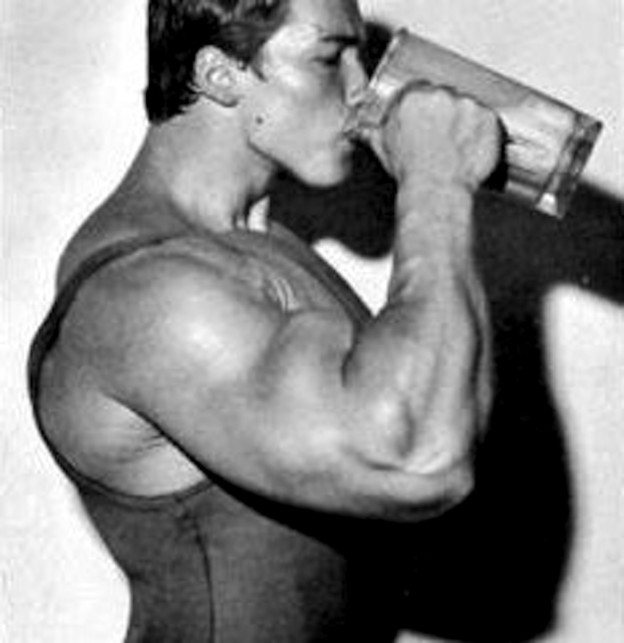Like many other things in the health and fitness industry post workout nutrition is a very controversial topic.
Recent research has given us greater insight into post workout nutrition and the role it plays in recovery, performance, and body composition changes.
In this article we are going to address 5 things you should know about post workout nutrition.
1. Pre workout nutrition may be more important than post
Weight training not only increase muscles protein synthesis but also muscle protein breakdown. If the net muscle protein synthesis exceed breakdown the body will be in an anabolic state.
On the other hand if net protein breakdown exceeds protein synthesis then the body will be in a catabolic state.
Training on an empty stomach is more likely to lead the later scenario especially for ectomorph body types. People tend to focus more on muscle protein synthesis but ignore muscle protein breakdown.
As such pre workout nutrition may be even more important than post workout nutrition to prevent the body going in a catabolic state.
I typically recommend a solid meal composed of protein, complex carbohydrates and a small amount of fat 1.5 to 2 hours before a training session. This will help maintain stable blood sugars and provide enough substrate to mitigate muscle protein breakdown.
If you train first thing in the morning and you can take 15 to 20 grams of essential amino acids 15 to 30 minutes before your workout. Since free form amino acids are very rapidly absorbded that will increase muscle protein systhsis and blood flow to the muscles without overwhelming the digestive system.
2. It is not essential to down a shake immediately post training
A few recent studies have shown that there is no benefit to having a shake immediately post training provided you had a pre workout meal or a shake. One study even showed that protein synthesis increased more when essential aminos were administered an hour post training verses immediately post.
This suggest there may be a protein resistance immediately post training because blood flow has been shifted away from the gut to the working muscles.
Also once protein synthesis has been stimulated in response to a high protein feeding the signal will remain elevated for roughly 2 to 3 hours. At that point the signal will become refractory and you will need to wait for it to come down before you can send it again.
For this reason it may be optimal to wait 15 minutes or so after your workout before you consume your shake. This will allow some time for blood flow to return to the gut and for the signal to drop from your pre workout meal or shake.
For the same reason I also do not recommend an intra-workout shake unless your workout goes longer than an hour. Intra-workout nutrition was pioneered by guys taking exogenous insulin. If they didn’t do it they would end up going hypoglycaemic.
3. Total protein and energy intake is much more important than nutrient timing
People often get caught up in the minor details and end up overlooking the big picture. No amount of precision, timing and diligence with your post workout nutrition will make much of a difference if you are not consuming enough protein and calories for the rest of the day.
Protein synthesis can remain elevated up to 48 hours post training. For this reason it is much more important to get enough protein and calories for the reminder of the day then simply worrying about downing a shake post training.
Now the more advanced someone becomes the shorter that window becomes due to the repeated bouts effect. So for more advanced athletes downing a shake post training becomes more important although they will still need to get enough nutrients for the rest of the day.
I recommend consuming between 2.2 to 3.4 grams of protein per kg of lean body mass a day spread out at roughly 2 to 3 hour intervals to allow muscle protein synthesis to return to baseline. There is no evidence to date to suggest greater protein intake than that is more beneficial.
The rest of the calories need to come from carbohydrates and fat. For someone in a mass gain phase that will typically be about 10% above maintenance. For someone in a cutting phase it will typically be about 20% below maintenance.
4. Carbohydrate intake does not augment post workout anabolic response
Some recent studies have shown that carbohydrate intake post training does not increase the anabolic response. This is because fast acting proteins like whey or essential aminos will lead to a large insulin spike and can be stored without the addition of carbohydrates.
As far as glycogen replenishment, carbohydrate intake immediately post training increases the rate but not the magnitude of resynthesis. This become more of an issue if multiple training session per day are being performed and immediate glycogen resynthesis is required.
If carbs are not consumed immediately post training, studies have shown that insulin sensity and glucose transporters to the muscle cells will remain elevated for days afterwards. Thats because insulin sensitity and glucose transporters are largely regulated by muscle glycogen concentration.
Regardless I still like to use between 60 to 100 grams of mixed carbohydrate powder along with 25 to 40 grams of whey protein post workout because it is more easily digestible and the digestive system is still not ready for a more substantial meal at that point.
A mixed carbohydrate powder containing both fast and slow acting carbohydrates helps suppress cortisol, mitigate muscle protein breakdown, and maintain stable blood sugars until it is time for your next meal a couple of hours later.
5. Avoid taking antioxidants around training
This one might sound counter intuitive as antioxidants help repair damaged tissue. However your body makes its own antioxidants in response to a training bout in order to initiate the recovery process.
When you take exogenous antioxidants in the form of pills you suppress your own endogenous production which impairs your ability to positively adapt to exercise induced stress.
A good analogy to use here would be comparing a flower that has grown in the wild verses a flower that has been grown in doors. The flower that has grown in the wild is much stronger and more resilient because it has had to upregulate its endogenous antioxidant production in response to the environmental stress.
For this reason I recommend avoiding antioxidant supplements for about 2 hours before and after training.






